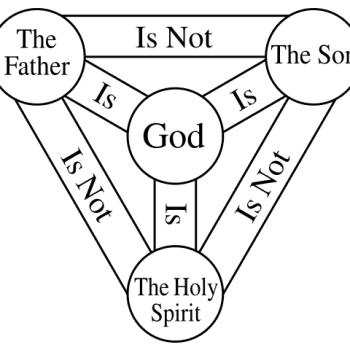
On my Romantic and Imaginative Theology web page I provide many Harry Potter links. The articles / books / audio files are from all perspectives: some favor the series, some oppose it, and some offer both sides, or ambiguous or uncertain or neutral opinion. Almost all of the links are from a Christian perspective (Catholic, Protestant, and Orthodox alike; e.g., John Granger: a leading proponent, is Orthodox).
What is my own opinion on the matter? I think there are good points on both sides of the argument, and able, thoughtful, committed, respectable Christian proponents of both the pro and con positions. My wife and I both enjoyed the three movies a lot (qua movies and qua fantasy), but I don’t read fiction, so I can’t comment on the books themselves.
I don’t see a huge amount of difference between Harry Potter and Lewis and Tolkien, in terms of use of fantasy, though undeniably the latter two write from a far more explicitly Christian perspective (Anglican and Catholic, respectively).
That doesn’t, however, necessarily mean that Harry Potter is an evil thing, though. Neither a mountain nor a sunset are “explicitly Christian” in terms of “ideological content,” so to speak, but does that make them “bad”? Of course not. For what it’s worth, J. K. Rowling is a member of the (Presbyterian) Church of Scotland. Presumably, her Christianity, then, would have some kind of presuppositional influence even in her constructed fantasy-world.
I would say that ultimately it comes down to individual choice and discernment. One should guide one’s children in this matter in much the same way as they would be guided with regard to the time to start dating, or whether to home-school or perhaps allow them into public school, despite the potential dangers to faith there. It’s simply too individual of an issue to make an ironclad rule.
If a child is prone to being led off in a million directions, irregardless of their ostensibly Christian belief-system, then chances are that danger might lurk in reading these books or watching the films (as in much other “non-Christian” material). If, on the other hand, the child is strong and persistently able to withstand any competing ideas, contrary to Christianity, then likely no particular danger would be present.
Watching the films didn’t harm my Christian faith in the slightest. On the other hand, at an earlier point in my life, when my faith was not yet strong or fully-formed (to put it mildly), the movies quite possibly could have helped lead me astray, since I did, in fact, get involved to a considerable degree in occultic pursuits. The supernatural held a strong fascination for me (thankfully channeled later on into Christian supernaturalism).
C. S. Lewis himself was also seriously involved in the occult in the period just before his encounter with the music and romanticism of Richard Wagner and a mythological sort of contemplation which he described as “Northernness”:
Now, for the first time, there burst upon me the idea that there might be real marvels all about us, that the visible world might only be a curtain to conceal huge realms uncharted by my very simple theology. And that started in me something with which, on and off, I have had plenty of trouble since — the desire for the preternatural, simply as such, the passion for the Occult. Not everyone has this disease; those who have will know what I mean [I do, very well] . . . It is a spiritual lust; and like the lust of the body it has the fatal power of making everything else in the world seem uninteresting while it lasts. (Surprised by Joy, New York: Harcourt Brace Jovanovich, 1955, 60)
At times as I watched these movies, I must admit that for fleeting moments I felt precisely this “desire” that Lewis refers to. It’s very difficult to describe without getting very heavy and mystical and philosophical, but it is a definite kind of coercion. I’m able to push it down because of strong Christian faith, but short of that, I can easily imagine (given my own background) someone with a similar bent being drawn into things which are harmful to their souls: true sorcery, witchcraft, Wicca, etc.: things which are definitely wrong and condemned in the Bible.
And that gets back to our main issue. Witchcraft or sorcery (everyone agrees) is portrayed in these books and movies. The side of “good” is chosen and ultimately triumphant, so there is little question of an advocacy of evil things. But on the other hand, overt hints of Christianity or God are missing (as far as I can see; perhaps the books are different). If parents allow their children to take part in this craze, then it must be with caution and discussion about the relationship of these stories to Christian doctrine and the ontology of the real, spiritual world that we live in. Fantasy is just that, but we know that the devil can use all things to lead people astray: especially if they are not vigilant.
Ultimately, then, I am not “against” Harry Potter, yet (similar to even many proponents) I would strongly urge a sharp watchful eye for potential spiritual danger, due to the nature of the subject matter, in proportion to the extent that one is prone to following non-Christian modes of thought and behavior, contra proper Christian boundaries and mature spiritual discernment. My view is very close to that expressed by the British Evangelical Alliance.
*****
A good friend of ours wrote to me, asking my opinion of leading Harry Potter critic Michael D. O’Brien’s article, “Harry Potter and the Paganization of Children’s Culture.” Her oldest son and our oldest son (both 19) are best friends, and attend a youth group where there has been some teaching against Harry Potter as of late. They may end up disagreeing on the matter. This was my response:
My position on this has remained the same for years now: Harry Potter is not, I think, essentially different from Lord of the Rings and the Chronicles of Narnia or, for that matter, classic fairy tales: all of which have magic and sorcery of some sort. If one has to go: so do all of them, in my view. It’s a sort of reductio ad absurdum: “you wanna be against Harry Potter? Okay, fine, but just be consistent and also throw out Lord of the Rings and the Chronicles of Narnia and Snow White, etc.”
O’Brien (knowing of this objection) tries to make a distinction between the different fantasies and makes an eloquent, detailed case for his position (probably the best to be found for that viewpoint and most worthy of serious consideration), but I don’t ultimately agree with it.
I have also thought for years now that the key is to go far beyond and deeper than the books and movies and to emphasize the education of children in Christian values: this is the “safe” framework within which they can (and should) read fantasy and watch those types of movies. Without the Christian grounding I actually agree with O’Brien (in this qualified sense): that it could quite possibly be spiritually dangerous for some kids with troubled backgrounds and lack of education in Christianity.
I did this myself (so I know, firsthand): without anywhere near proper knowledge of Christianity up to age 18, or commitment to Christ, I became involved in the occult and various questionable practices (telepathy, Ouija board, etc.). I had the spiritual imagination and curiosity and yearning, but because of lack of knowledge, it went in a wrong direction. Eventually, thank God, and by His grace, I channeled it towards the God of the Bible.
Since my kids do have that grounding, I have no worries whatever about Harry Potter or any of the other fantasies they watch (or now write about). I feel almost exactly the same about public schools. If parents teach their children Christianity and discipleship, then I’m not worried much at all about kids being in the schools (as in your own family’s case). They can be witnesses there: a light to others. [my wife Judy has home-schooled all four of our children]
But if they don’t teach them that, then the kids will probably come out with this society’s values, and be good secularized liberal clones who parrot the party line (as I was, growing up). The bottom line is spiritual education, which is ultimately the parents’ responsibility. So it’s all in our knowledge going into something like Harry Potter.
[My son] at first was ready to give up reading Harry Potter and watching the movies completely because of the priest’s talk. I simply encouraged him to not be impulsive and legalistic about it, and to read both sides, and make up his own mind: using his critical faculties. And so I directed him to my collection of articles: pro, con, and neutral about Harry Potter: at the end of my Romantic and Imaginative Theology: Inklings of the World Beyond web page. He is not now opposed to it, far as I can tell.
We can’t force our kids to like something if they don’t. [Name] and [Name] are both legal adults now. They have to think for themselves. I just wanted [my son] to read both sides and make up his own mind. Then there is the factor of being tolerant of other views. If [my friend’s son] decides to be against Harry Potter then he will have to figure out how to relate to his friends who think differently. Then it will be a question of honestly held differences among Christians (even two Catholics). That could be yet another lesson in life for our kids, I reckon!
*****
The kids of our Christian friends who go to public school are doing fine. They learned what they needed to at home and in church. Our choice was home-schooling. But I’m not gonna sit here and condemn everyone who chose public schools for their children. As long as they teach them Christian values, they are doing their responsibility.
Also, kids in the same situation who read or watch Harry Potter are doing fine, too. I’ll stack my own kids (19, 17, 14, 9) up against anyone’s. They don’t smoke, drink, do drugs, swear, are not sexually active, are polite, and very active in outreach activities like missions, etc.
*
Anything can be used by the devil for his own ends. Few things have been more warped and perverted for evil ends than, for example, the Bible.
*
It doesn’t follow at all that I have to think someone is a “bad guy” just because of one disagreement. My friend Patrick Madrid and I disagree on this. Doesn’t mean I have to be “against” him. I admire him as much as I do anyone in the world.
Nor do I “give the green light with no cautionary advice at all.” I made that clear in my post and in quoting part of it to that effect in the combox. There is some middle ground here where we can all agree.
***
(originally 7-19-05 and 10-28-10)
Photo credit: Hogwarts: recreated at Universal Studios, Orlando, Florida, Photograph by Deanna Castings (6-20-17) [public domain / Pexels.com]
***














